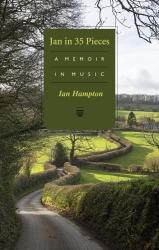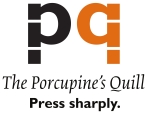
In his memoir, Jan in 35 Pieces, acclaimed cellist Ian Hampton recounts his years of music and camaraderie, ably capturing his life-long dedication to the history and culture of classical musical performance.
About the Book
With charm, humour and a generous smattering of musical history, cellist Ian Hampton takes readers into the cello section of the London Symphony Orchestra, performing The Rite of Spring under the baton of Pierre Monteux; into a ubiquitous Bombardier snow-machine tracking across the Arctic, late for a concert with members of the CBC Radio Orchestra; to a basement party where Ian plays Schubert with Stradivarius-wielding cellist Jacqueline du Pré; and on to the stage at Wigmore Hall in London, premiering the works of innovative Canadian composers with the Purcell String Quartet. Structured as if it were a concert, Jan in 35 Pieces revolves around thirty-five compositions that have influenced the course of Ian’s long career. Jan in 35 Pieces is more than a memoir—it is an extravaganza of music history in which Hampton offers smart, playful glimpses into the world of a professional musician.
Read an Excerpt
From "One: Arlequin"
1942
Down London’s Baker Street, Jan and his mother, Elf, pick their way around shards of glass and pieces of masonry on their way to Jan’s cello lesson. As they pass Madame Tussaud’s, Jan notices that a landmark building has disappeared; the skyline beyond Marylebone Road looks different. Instead of the building, there’s a gap through which Jan can see a cluster of barrage balloons like giant ears, straining on their ropes.
He walks with his mother in silence. London is often quiet after a bombing. Petrol is rationed and there is little traffic apart from the double-decker buses. They always catch the six a.m. workers’ bus from home—the village of Radnage—to High Wycombe. Jan sits with Elf and looks out the window. If his father, Colin, takes him, they sit upstairs where smoking is allowed; the fumes of Woodbines always make Jan’s eyes smart. He follows Elf out of the bus and onto the platform, past the poster of a ship sinking under the words "Walls Have Ears", past the old, red machine on the railway platform that reminds Jan of a tomb standing in mute testimony to those golden days of pre-war Rowntrees Chocolate Bar sixpence, then into the 7:15 train from High Wycombe to Marylebone: "Please shew your ticket".
Then they arrive in London and search for breakfast. Jan always makes a game of seeing which café in the district cooks the best dried [powdered] egg. Lyons Corner House is the preferred eatery with their scrambled egg on toast. Once the cashier is paid, Elf and Jan continue on the journey, passing the Royal Academy of Music and turning down Nottingham Place.
Now after Baker Street’s gaps and shards of glass, this street is untouched—the same dreary row of townhouses, except the metal railings which used to guide you to their black front doors have been removed to be turned into guns. Jan knocks on 34—the London Cello School.
Praise for Jan in 35 Pieces
"... the most conceptually stimulating, the most musically informative, the most structurally exceptional, and the most entertaining narrative writing in the autobiography genre that it’s been my good fortune to have cross my aging path in one hell of a long time."
—Dr. Cam Trowsdale, former concertmaster, CBC and VOA orchestras; Professor Emeritus, UBC
About the Author

Credit: J. L. Walter
Born in London, England in 1935, Ian Hampton is an acclaimed cellist, educator and administrator. After stints with the London Symphony Orchestra and the Edinburgh String Quartet, he taught at a number of American institutions, including the University of California at Davis, before moving to Canada to become principal cellist of the Vancouver Symphony Orchestra. Among his many accomplishments, Ian is a founding member of the Purcell String Quartet and the Academy of St. Martin in the Fields, as well as Artistic Director Emeritus of the Langley Community Music School. His accolades include a BC Arts Council Award for his extraordinary contribution as a performer, teacher and administrator. In 2009, he was named a Canadian Music Centre ambassador in recognition of his contribution to Canadian music, and in 2011, he was awarded an honorary doctorate from Simon Fraser University. He lives near Vancouver.
